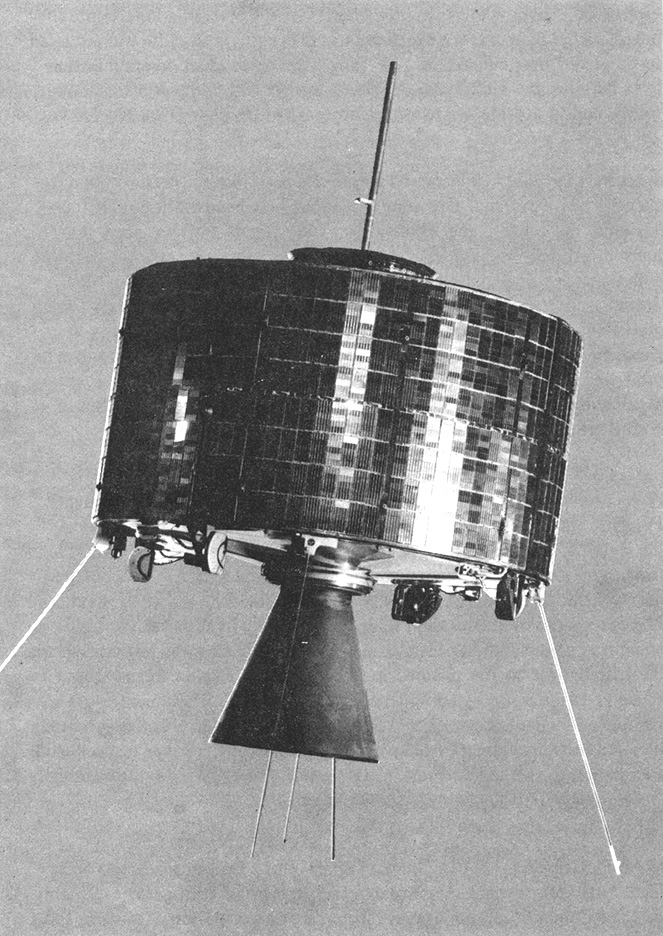The blessing of Saint Valentine be upon you and yours! Now, on to space history …
Fifty years ago today — February 14, 1963 — a Thor Delta rocket out of Cape Canaveral launched Syncom 1, the first attempt to test Arthur C. Clarke’s idea about global communications from synchronous orbit.

(Syncom 1. NASA image.)
Syncom 1 (short for “synchronous communications”) was intended to go into the 24-hour orbit proposed by Clarke to be used for relay satellites. It was expected to have an approximately 30-degree orbital inclination, and initial contact with the satellite was made while it was in its initial elliptical orbit; however,
About 5 hours after launch the apogee motor was commanded to fire to place the satellite into a near-synchronous orbit. At about the time the motor completed its 20 second burn all contact was lost. NASA officials assumed that “the satellite’s spin axis was misaligned at the time of the apogee motor firing. Because of this they have been unable to determine whether the satellite is damaged.” Attempts were made to communicate with the spacecraft but contact was never re-established.
The first truly geosynchronous communications tests would have to wait a few more months.








